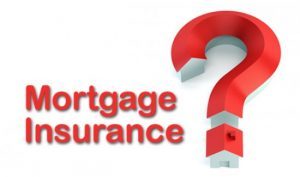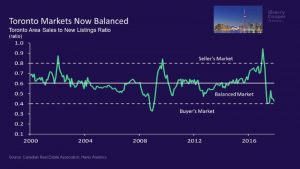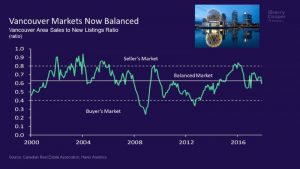
When considering buying your first home, I am sure you will have many questions. I hope to give you some insight to what lenders are most importantly looking for when qualifying for a mortgage.
1. What’s the best rate I can get?
The rate that you receive depends on a number of things. I get a lot of clients that are what I like to call “rate sensitive” this means that they are fixated on the lowest rate and don’t understand why they may not be able to get the advertised rate.
A number of those rock bottom rates you see advertised have conditions to them. For instance they may be only for a 30 day quick close, or they may not be portable.
Some factors that determine rate are employment (self employed, full time, part time, etc.) credit score, down payment, income and more.
Until a full application’s been received and credit has been checked you cannot be guaranteed a rate.
2. What’s the maximum mortgage amount for which I can qualify?
This of course is going to be based on your income and liability circumstances. There are two calculations brokers use to qualify a borrower. The first is your Gross Debt Service (GDS) ratio. GDS looks at your proposed new housing costs (mortgage payments, taxes, heating costs and strata/condo fees). Generally this amount should be no more than 32% of your gross monthly income. For example, if your gross monthly income is $4,000, you should not be spending more than $1,280 in monthly housing expenses. Lenders and brokers calculate your Total Debt Service (TDS) ratio. The TDS ratio measures your total debt obligations (including housing costs, loans, car payments and credit card bills). Your TDS ratio should be no more than 41-44% of your gross monthly income (this is dependent on credit score as well).
Keep in mind that these numbers are prescribed maximums and that you should strive for lower ratios for a more flexible lifestyle.
3. How much money do I need for a down payment?
The minimum down payment required is 5% of the purchase price for houses under $500,000. For homes over $500,000 10% down payment is required on the amount over $500,000. If you want to avoid CMHC mortgage insurance than 20% down payment or greater is needed.
4. What happens if I don’t have the full down payment amount?
There are programs available that enable you to use other forms of down payment. Your RRSPs can be used without being taxed if you pay back within 15 years, gifted funds from parents are also accepted. Some lenders will also allow a flex down program to be used. This is where based on qualification you can use a line of credit towards your down payment.
5. What will a lender look at when qualifying me for a mortgage?
These are the most important factors a lender will look at when qualifying for a mortgage such as employment history, income, debt, credit history and the value/kind of property.
Most importantly, the lender is looking to make sure you can afford the home you’re wanting to purchase. Second most important thing they consider is the value in the home. The lender wants to make sure that if you default on payments that they have security in the home.
Overall lenders are looking for stability. They want to see this with employment, debt re-payment, and credit history. It’s important for you to have good credit, and minimal liabilities. Make sure you’re never late never late on any loan or credit card payments. This shows you are responsible and less of a risk for the lender.
6. Should I go with a fixed or variable rate?
This ultimately depends on your risk tolerance. If you’re a first time home buyer you may feel a lot safer going fixed as you know what you’re expected to pay for the term of the mortgage.
However, variable rates can save you a lot of money, I mean thousands.
If you want to choose a variable rate and qualify for one (as it’s a bit tougher) just know and understand that you run the slight risk of it possibly rising while in your term if the prime rate moves up, but you can never predict this. There are much smaller penalties with a variable rate than a 5 year fixed.
Your Dominion Lending Centres mortgage professional can discuss all the differences and benefits for you.
7. What credit score do I need to qualify?
A credit score of 680 and up is a good credit score that can offer you the discounted rates. There are lenders that lend on lower credit scores but usually at a bit higher rate.
8. What happens if my credit score isn’t great?
If your credit isn’t the greatest there are ways to increase your score. Most credit reporting companies report every month. So luckily you can change your score within a few months time if you do the right things. The most important thing is to pay down your credit cards so the balance is no more than 30% of the limit.
Even better…pay off your credit card balance in full, if you can have a $0 balance owing that’s the best!
Don’t go taking out any large loans before a mortgage approval. It’s best to wait till you’ve actually got the property in your hands. You don’t want to do anything that could jeopardize your approval or have a lender pull an approval from you as they re-checked your credit prior to closing and now see an expensive car loan.
Make sure everything is up to date. No overdue collections still showing or an old bill showing up on there when you paid it ages ago, but never got removed for some reason.
9. How much are closing costs?
Closing costs on average are 1.5% of the total purchase price. This is a guideline to go by, but not exact. Closing costs will cover things like, inspections, lawyer fees, property transfer tax, appraisals, and title insurance.
10. How much will my mortgage payments be?
This is going to depend on many different things. The size of your down payment, the interest rate, the purchase price, amortization chose, whether or not you’re paying mortgage insurance (CMHC) and also the frequency of payments ( bi-weekly accelerated, or monthly).
If you have any other questions, please feel free to contact any of the Dominion Lending Centres mortgage professionals from all across Canada!
Contact me for your best mortgage options 705.669.7798 or trina@ndlc.ca
#trinamortgages #mortgages #ndlc #freedomofchoice
#bestmortgageforme #executive #firstimehomebuyer
If you found this information valuable, I only ask that you share with your friends and family.
Copyright DLC










![aba32331-5f54-47e5-a538-98324f362738[1]](http://sherrycooper.com/wp-content/uploads/2017/12/aba32331-5f54-47e5-a538-98324f3627381-300x168.png)
![af1e05b9-fb28-4175-bda6-7ee05ea8be44[1]](http://sherrycooper.com/wp-content/uploads/2017/12/af1e05b9-fb28-4175-bda6-7ee05ea8be441-300x166.png)
![22518f7b-b6c5-4b52-8f7b-435128333767[1]](http://sherrycooper.com/wp-content/uploads/2017/12/22518f7b-b6c5-4b52-8f7b-4351283337671.png)
![30646683-0026-44c1-b307-4588effb8193[1]](http://sherrycooper.com/wp-content/uploads/2017/12/30646683-0026-44c1-b307-4588effb81931.png)



